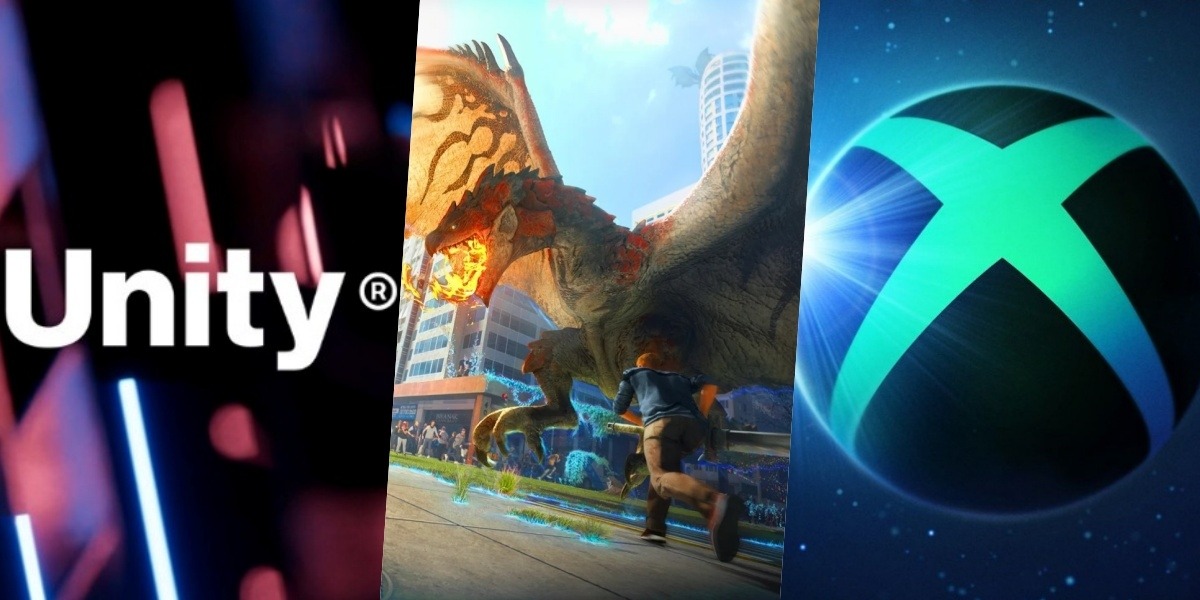Stay Informed
Get Industry News In Your Inbox…
Sign Up Today
The games industry moves quickly and while stories may come and go there are some that we just can’t let go of…
So, to give those particularly thorny topics a further going over we’ve created a weekly digest where the members of the PocketGamer.biz team share their thoughts and go that little bit deeper on some of the more interesting things that have happened in mobile gaming in the past week.

Craig Chapple
Head of Content
Unity charts a new path forward without the “catastrophic” Runtime Fee
The big story of the week and exactly one year to the day: the Unity Runtime Fee has been cancelled. An interesting way to celebrate the anniversary of the most destructive day in the company’s history. Fun fact: the link to the original article announcing Unity’s Runtime Fee, which was pulled days after it went live, now directs readers to its cancellation.
Developers have giving their early reactions – it’s a positive sign, and the industry wants a strong Unity. But the trust the company worked so hard to gain over the years remains broken for some.
One point from Rami Ismail stood out to me:
“Not only was it a massive blow to people’s trust in the engine and Unity’s understanding of development realities affecting their userbase, but their communication also sent a signal that if the model didn’t go through, the continuity of Unity as an engine isn’t guaranteed – honestly, the one thing that developers need from an engine is for it to keep existing.”
Years ago I wrote about the history of game engines, discussing its messy past and the risks of a race to the bottom. But even so, a few years ago the notion of Unity not existing one day may have sounded like pure fantasy given its prominent position as a market leader. Since the Runtime Fee announcement? Not so much.
It was always going to take a long time – perhaps years – to see the full impact on Unity’s Create revenue from this “catastrophic” announcement. Perhaps alarm bells have finally been ringing loudly enough internally that new leadership finally made the decision to change course.
As I noted in this article, some developers, like Marvel Snap studio Second Dinner, have already announced their intention to move to other engines like Godot. It’ll be curious to see, once more developers move on to new projects, how many will stay with Unity, and how many will leave.
This chart showing engine usage in the Game Maker’s Toolkit (GMTK) Game Jam from 2020 to 2024, shared with us by game designer Manuel Correia, shows part of the problem for Unity:

A studio changing its game engine of choice is no easy task, of course. As Tiny Rebel Games CEO Susan Cummings said, simply moving to a new engine would require “substantial changes” to the engineering team.
But when it comes down to questions of trust and whether Unity will continue to exist and be a market leader, some developers may already feel the risk and effort is worth such a drastic change.

Microsoft cuts 650 jobs in its Xbox games division
Microsoft has announced more job cuts, this time impacting 650 roles within its Xbox unit. Unfortunately, this isn’t the first slew of layoffs we’ve seen from the company. Back in January, the tech giant let go a massive 1,900 employees at Activision Blizzard and Xbox, and then later made further layoffs at Bethesda.
This latest round of redundancies also involves the biggest acquisition in video games history, with the losses impacting Activision Blizzard employees.
Most of the positions impacted will be in corporate and support roles, it claimed. Of course, when huge companies merge, it’s unfortunate but often likely that layoffs will happen as duplicate roles are worked out and people are let go. But in a year that has already had so many job losses, many from Microsoft, it’s hard-hitting.
While Phil Spencer may have assured everyone that “no games, devices or experiences are being cancelled and no studios are being closed”, it does appear that teams working on titles such as Warcraft Rumble and Call of Duty: Warzone Mobile have been hit.
Is Microsoft finally done with layoffs? Or will there other surprises as we head toward the year’s final months? Let’s hope it’s the former.

It’s been one whole year since Monster Hunter Now launched globally on iOS and Android, and anyone who reads our Week in Views regularly will know I’ve talked about this game a lot. A LOT.
Simply put, in its first year Monster Hunter Now quickly established itself as Niantic’s second-biggest game behind Pokémon Go and proved that the developer could catch lightning twice with the geolocation formula. Is it as big as Go? No, but it’s certainly a success in its own right.
With almost $225 million gross revenue in its first year by AppMagic estimates, Now’s found a niche and run with it, innovating through the months with a range of new additions, from monsters and weapons to monetisation tactics. Whether that’s a Season Pass or paid-only monster hunts, it’s clear that Niantic’s willing to give paying players some bonus treats, without leaving the free-to-play market behind.
And with monsters first introduced in Rise finally coming to the game, we’re one step closer to getting one of my personal favourite’s, Garangolm, in Now. He may not be in this update, but the dream lives on, and is now one step closer to reality.

